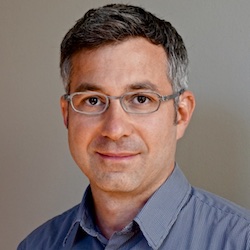
Urban Data Science, Responsibly

Urban Data Science, Responsibly



With over 80% of the planet impacted by urbanization in an accelerating trend, this moment in history is defined by a clarion call for inclusive, data-driven innovation to improve the resiliency, health, and well-being of cities. Luckily, as culture and communications expert Shannon Mattern noted in 2013, “we have citizen scientists and public labs, urban explorers and infrastructural tourists generating and collecting their own data, in the form of quantitative readings of air quality, soil samples from brownfields, or noise readings from industrial sites. Elsewhere, we have civic hackers hacking away on open data, developing a cornucopia of apps and data visualizations to disseminate social and environmental justice, one iPhone at a time.”
As an effort led by Bill Howe, with eScience Institute and the Information School and founding executive committee member of Urban@UW, we are designing, scoping, and project sourcing for Urbanalytics, a campus-wide effort to advance municipal big data projects. The Urbanalytics Studio will bridge expertise from the eScience Institute, the Center for Studies in Demography and Ecology (CSDE), and faculty from across the Urban@UW network to establish a permanent capacity for high-impact data-driven analytics and research projects on behalf of government and community stakeholders, addressing the complex challenges and opportunities of the urban landscape. This program will be unique in its ability to deploy 1) the advanced skills, tools, and techniques of data science; 2) the oversight, rigor, and robust perspective of the academic research community studying urban issues from the social to the environmental, from economics to policy; and 3) a strong engagement with key stakeholders in local city and community leadership to ensure translation into practice. The Urbanalytics Studio will offer a “data voice” often missing in the politics and opinions of urban challenges. And more importantly, it will support a shift in UW focus in this sphere from “R&D” to “RD&D”—- research, development, and deployment into practice and policy.
Urbanalytics is seeking research projects that build collaborations among interdisciplinary partners and/or external stakeholders and incorporate computational or data science work; one-quarter “incubator” projects seeking visibility or development to advance fundable projects; data scientists who want to apply their skills to urban social issues; and urban researchers who want to incorporate data science into their work.
Our initial goal is to assess the demand for various resources — skills, funding, datasets, external partners, faculty guidance. We seek to find ways to play a matchmaking role, sometimes augmented with external funding as appropriate and available.
Projects with the potential to generate comparative analytics or regional data projects in partnership with the University of British Columbia in Vancouver, Canada should visit the Cascadia Urban Analytics Cooperative website, and specify that interest or connection via email.
The University of Washington (through the Urbanalytics Studio, a partnership between the UW eScience Institute and Urban@UW) and the University of British Columbia (through a partnership between UBC’s Data Science Institute and UBC’s Sustainability Initiative) have formed the Cascadia Urban Analytics Cooperative (CUAC), an applied, interdisciplinary, regional center that will bring together academic researchers, students, and public stakeholder groups to address topics affecting citizens of the Cascadia region. The specific focus of the Cascadia Urban Analytics Cooperative will be data science for social good in an urban context: high-impact data science and analytics projects that aim to understand and extract valuable actionable information out of data from urban environments in the Cascadia region. Funded in part by Microsoft, this partnership is pursuing three primary initiatives at the outset:
Urbanalytics together with Urban@UW is proud to be a participating in the MetroLab Network, an initiative of the White House aimed at activating smart city principles through targeted partnerships between cities and universities. The City of Seattle, led by CTO Michael Mattmiller, and the University of Washington, led by Bill Howe, are hosting one of 40 city-university partnerships in this national network, each striving to develop technological and data-grounded solutions to challenges facing urban areas. Our partnership is focused on leveraging smart city technology for social good. Funded in part by the MacArthur Foundation, this partnership is addressing three projects at the outset:
Through these and future projects, our ambition is to leverage city-university and city-to-city partnerships to broaden knowledge-sharing and collectively work towards addressing urban challenges that affect multiple communities: from individual citizens and institutions, to the city itself.
 Gerome Miklau
Gerome MiklauCollege of Information and Computer Sciences, University of Massachusetts, Amherst
Responsible Data Management
 Matthew Gee
Matthew GeeImpact Lab; Center for Data Science and Public Policy, University of Chicago
Responsible Data Management